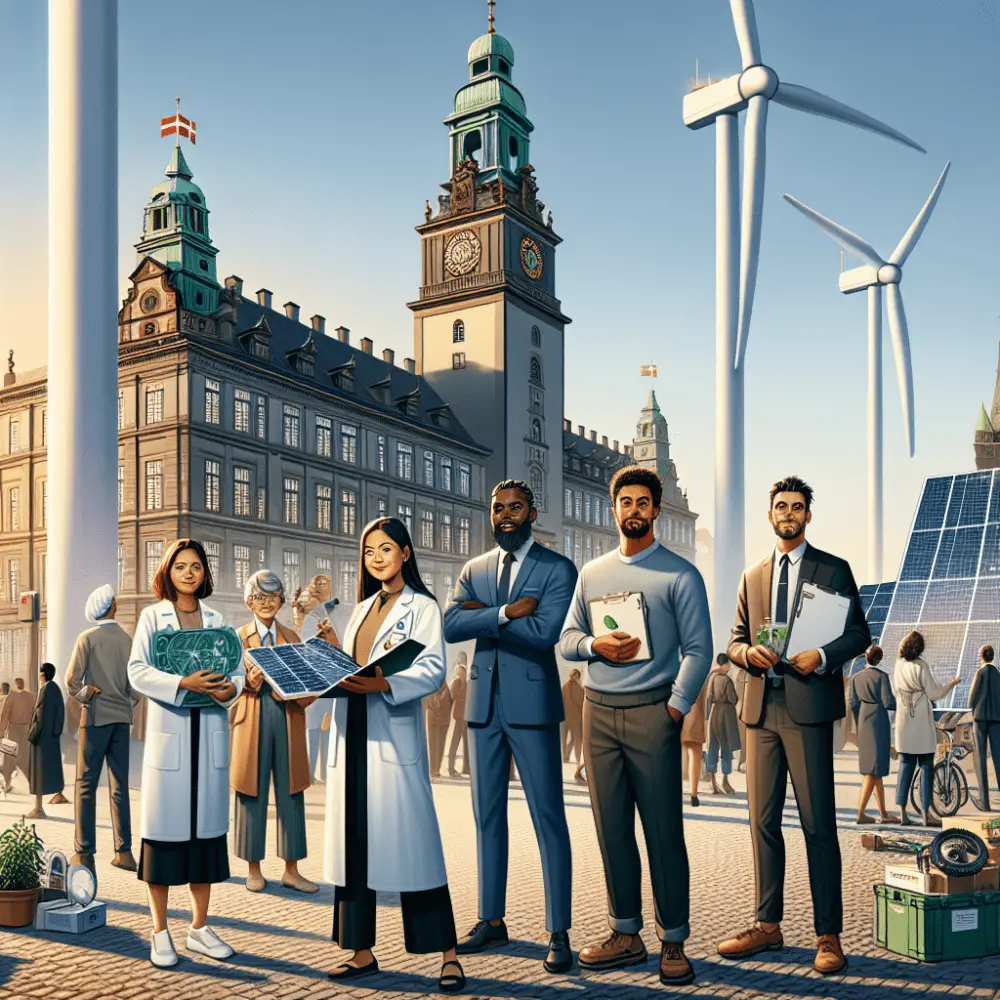Scholarship details
Denmark has long been a pioneer in renewable energy, setting ambitious goals and making significant strides towards a sustainable future. In 2024, the Danish government is furthering its commitment to renewable energy by offering an extensive Renewable Resources Grant aimed at fostering innovation and development in the sector. This article delves into the details of the grant, the host organization behind it, and why Denmark is an ideal location for such an initiative.
The Host Organization: Energistyrelsen
The Renewable Resources Grant is managed by Energistyrelsen, also known as the Danish Energy Agency. Energistyrelsen operates under the Ministry of Climate, Energy, and Utilities in Denmark. Established with the mission to promote sustainable energy solutions, Energistyrelsen is responsible for ensuring that Denmark meets its ambitious climate targets.
Energistyrelsen has a robust history of facilitating projects that encourage efficient energy use and renewable resource development. The agency closely collaborates with various stakeholders including government bodies, private companies, and international organizations to implement innovative energy solutions. Their initiatives span across multiple sectors—ranging from wind energy to solar power, biomass, and geothermal technologies.
Why Denmark?
Understanding why Denmark is a frontrunner in renewable energy adds depth to any discussion about this grant. With a population of around 5.8 million people and located in Northern Europe, Denmark is known for its high quality of life and progressive social policies.
Renewable Energy Leader
Denmark’s leadership in renewable energy dates back several decades. The country boasts one of the highest shares of wind power in its electricity mix globally—over 50% as of recent years. This success owes much to strategic investments and supportive governmental policies which have nurtured a thriving renewable sector.
Technological Innovation
Denmark’s commitment to technological innovation makes it an exciting destination for anyone interested in renewable resources. The country hosts several research institutions and universities that are at the forefront of clean energy technology. These institutions often collaborate with industry leaders like Vestas Wind Systems A/S and Ørsted to develop cutting-edge solutions.
Sustainability Culture
A deep-seated culture of sustainability permeates Danish society. From biking culture to stringent recycling programs, Danes incorporate eco-friendly practices into their daily lives. This cultural ethos makes Denmark not just an ideal place for renewable resource projects but also provides a supportive environment for innovators looking to make meaningful contributions.
About the Renewable Resources Grant
The Renewable Resources Grant aims to support projects that focus on advancing technologies related to wind, solar power, bioenergy, geothermal resources, hydrogen fuel cells, or other emerging renewable technologies. The grant focuses on innovation but also considers feasibility and scalability as crucial factors for approval.
Objectives
- Promote Technological Innovation: Foster research and development aimed at discovering new technologies or significantly improving existing ones.
- Market Readiness: Support projects that showcase commercial viability.
- Sustainability: Prioritize initiatives that can demonstrate long-term sustainability both economically and environmentally.
- Collaboration: Encourage partnerships between private companies, public institutions, NGOs, and international entities.
Funding Details
The total funding pool for 2024 is DKK 500 million (approximately USD 75 million). Individual grants can range from DKK 1 million (USD 150k) to DKK 50 million (USD 7.5 million), depending on project scope and potential impact.
Eligibility Criteria
- Applicant Type: Open to businesses (both startups and established companies), academic institutions, non-profit organizations, public bodies or consortia thereof.
- Project Stage: Both early-stage research projects as well as those nearing market readiness are eligible.
- Geographic Focus: While there’s a preference for projects benefiting Denmark directly or indirectly through knowledge transfer or technological advancements applicable within Danish contexts.
4 . Sustainability Metrics: Projects must exhibit clear sustainability benefits including but not limited reducing carbon footprint aligning with EU environmental standards etc .
Application Process
Interested parties must submit detailed proposals through Energistyrelsen’s online portal starting January 15th ,2024 . All submissions are subject rigorous review process designed evaluate technical feasibility economic viability scalability ethical considerations among other factors Final decisions will be announced by June end giving applicants sufficient time kickstart their initiatives within same calendar year
Required Documentation
- Project Proposal Detailed description covering objectives methodology expected outcomes etc
- Budget Plan Clear breakdown estimated costs substantiated financial projections
- Timeline Gantt chart outlining key milestones
- Team Composition CVs principal investigators key team members
- Letters Support Optional but recommended securing endorsements collaborating partners experts field
Success Stories Inspiration Future Aspirants
To illustrate impact previous similar grants recent success stories highlight potential transformative power this funding opportunity
One noteworthy example involves Aarhus University collaboration Grundfos global leader pump solutions They received grant develop smart water management system integrates AI-driven analytics IoT sensors optimize water usage industrial agricultural applications This initiative helped reduce freshwater consumption significantly proving scalability wider implementation contexts globally
Another inspiring case study relates startup Seaborg Technologies specialized compact molten salt reactors CMSRs providing safe affordable nuclear option meeting growing global electricity demands They leveraged initial seed funding accelerate R&D efforts eventually securing additional investments integrate solution existing grids contributing decarbonization goals multiple countries worldwide
These examples underscore immense potential lying within realm innovative endeavors supported adequately resourced platforms like Renewable Resources Grant
Conclusion
Denmark commitment advancing renewable energies reflected myriad ways including substantial grants fostering innovations technological breakthroughs As exemplified past successful initiatives forthcoming Renewable Resource Grant offers unique unparalleled opportunity researchers entrepreneurs alike contribute shaping sustainable future benefitting not only local communities but global ecosystem large Interested candidates urged prepare thoroughly leveraging available resources insights maximize chances securing this prestigious transformative funding








